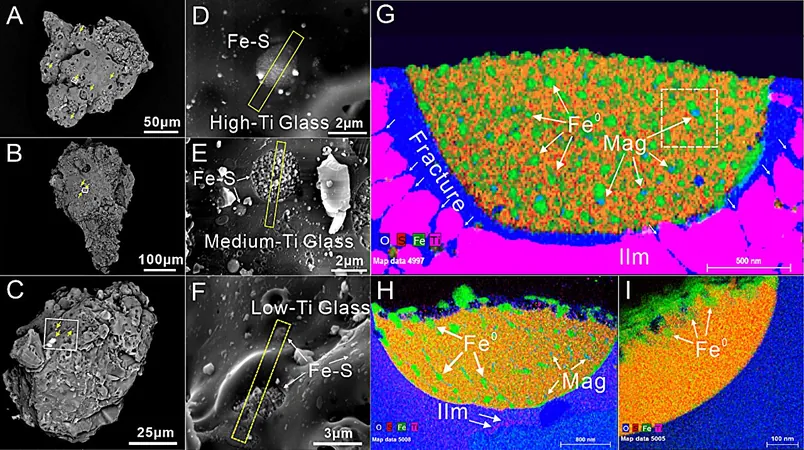
Scientists Discover Life's Building Blocks Could Survive in Venus’ Sulfuric Acid Clouds!
2024-09-26
Introduction
Venus, often referred to as the "Hellish Planet," has extreme conditions that have long fascinated scientists. The surface temperature there can exceed the melting point of lead, and its atmosphere, mostly composed of carbon dioxide, is notorious for its high concentration of sulfuric acid. While these factors make the surface virtually uninhabitable, the atmosphere presents an intriguing paradox for astrobiologists.
Research Background
In recent studies, researchers investigated whether life’s building blocks could endure the harsh conditions present in Venus' atmosphere, particularly in its upper layers, where temperatures and pressures align more closely with those found on Earth. Although a 2020 finding of the possible biomarker phosphine sparked considerable excitement about the existence of life, scientific skepticism soon followed, and the search for life on Venus continued.
Accessibility and Future Missions
Part of the ongoing intrigue around Venus is its accessibility; unlike distant exoplanets, Venus is within reach. Currently, the Japanese Akatsuki spacecraft is orbiting the planet, with even more missions planned, including NASA's Veritas and DAVINCI missions, and ESA’s EnVision, set to launch in the mid-2030s.
Recent Study on Lipids
A newly released study titled "Simple lipids form stable higher-order structures in concentrated sulfuric acid," led by Daniel Duzdevich from the University of Chicago, explores whether the fundamental components of life can withstand conditions on Venus. While Venus's surface is too hostile for life as we know it, its cloud decks hold promise. The researchers wanted to see if organic compounds could survive in concentrated sulfuric acid.
Stability of Lipids
Their hypothesis hinged on the stability of lipids, which are crucial for cell membranes. These membranes not only protect cells but play a critical role in maintaining a stable internal environment, particularly under extreme conditions. To investigate, the team subjected various lipids to sulfuric acid, measuring their stability over time.
Results and Implications
Remarkably, the results proved some lipids could survive and even form stable membrane-like structures when exposed to sulfuric acid. This implies that certain aspects of life's chemistry may thrive in a solvent environment vastly different from the water we rely on here on Earth.
Potential for Life on Other Worlds
This discovery raises exciting questions about the possibility of life not only on Venus but also on other worlds with similar conditions. Could there be exoplanets with sulfuric acid atmospheres where life exists? Researchers assert that if life can be sustained in such corrosive environments, similar processes could be happening elsewhere in the universe.
Conclusion
In conclusion, the study signifies vast potential for examining habitability in environments previously thought to be uninhabitable. The findings underscore that life may adapt to alternative solvents, challenging our understanding of biology and the limits of life. If the prospect of life thriving in Venus' clouds sounds far-fetched, remember: science often yields surprising revelations, and we are only beginning to explore the universe's mysteries.
Final Thoughts
Stay tuned as we unravel more about the potential for life beyond Earth! Who knows what other secrets Venus may hold?

 Brasil (PT)
Brasil (PT)
 Canada (EN)
Canada (EN)
 Chile (ES)
Chile (ES)
 España (ES)
España (ES)
 France (FR)
France (FR)
 Hong Kong (EN)
Hong Kong (EN)
 Italia (IT)
Italia (IT)
 日本 (JA)
日本 (JA)
 Magyarország (HU)
Magyarország (HU)
 Norge (NO)
Norge (NO)
 Polska (PL)
Polska (PL)
 Schweiz (DE)
Schweiz (DE)
 Singapore (EN)
Singapore (EN)
 Sverige (SV)
Sverige (SV)
 Suomi (FI)
Suomi (FI)
 Türkiye (TR)
Türkiye (TR)